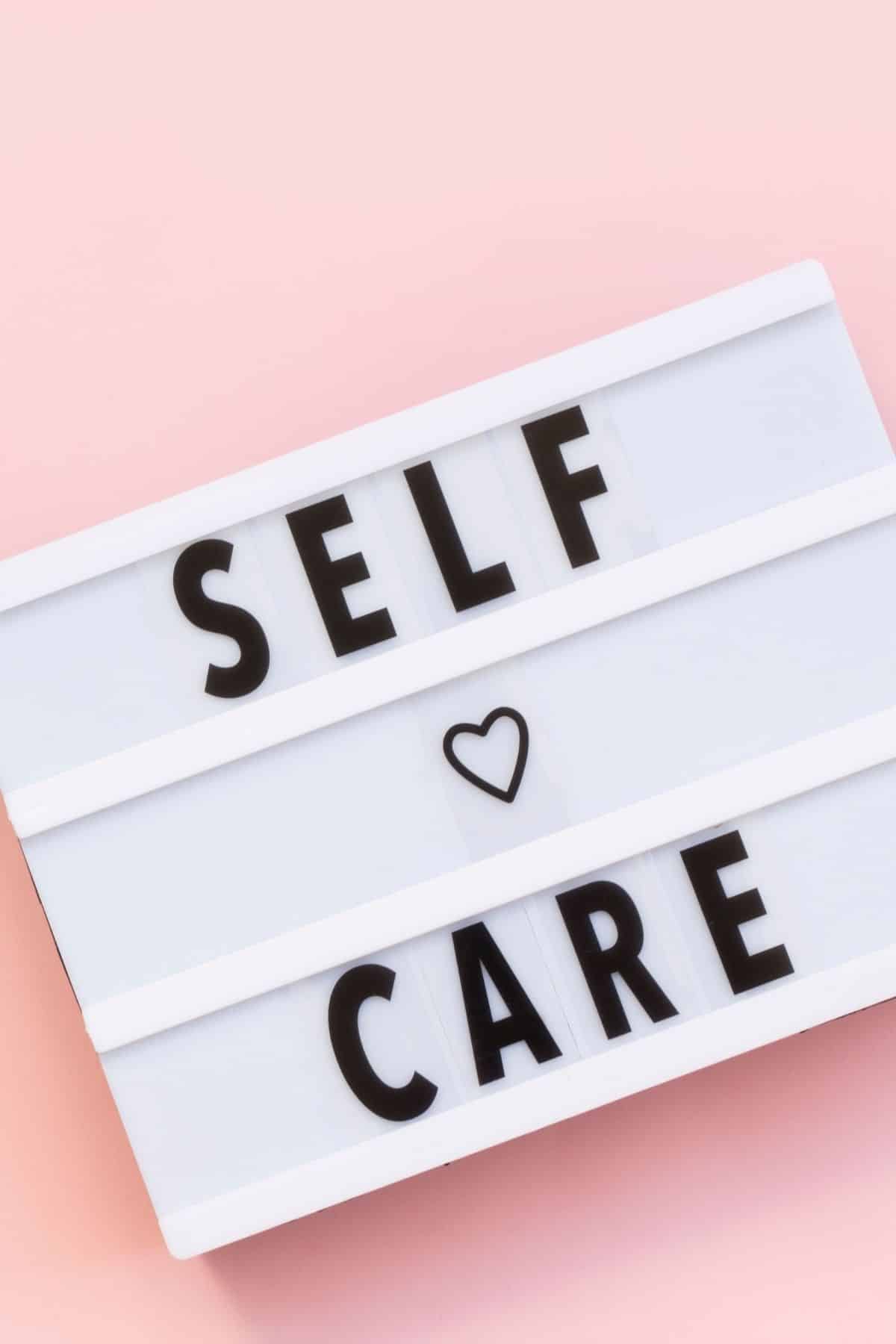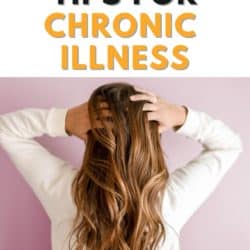7 Self-Care Tips for Chronic Illness
Self-care is important for people living with chronic illness. Learn seven self-care tips that can help you lead a happier and healthier life.

Having a chronic illness like autoimmune disease, diabetes, mental illness, or arthritis can make life even harder than usual.
Often, those with chronic illness suffer from fatigue, aches, and pains, mental fog, or mood regulation issues. These kinds of symptoms can impair your social life, work performance, and family dynamics.
Living with chronic illness can be made a little easier with some dedicated self-care. Whether you have an autoimmune disease, mental disease, hereditary disease, or another chronic illness, self-care should be part of your healing.
How Chronic Disease Affects Us
When you have a chronic disease, you also have chronic stress. A lack of homeostasis in the body causes stress. When we are chronically stressed, this affects all other systems in the body, including hormones, immunity, stress management, and more.
As someone who has dealt with multiple chronic diseases and cancer, I know how overwhelming it all can be. That’s why I’m sharing my experiences and what I’ve learned in this article.
Unbalanced Hormones
Stress is a major culprit for imbalanced hormones. When you have a chronic illness, your body is not in homeostasis. Rather, it is funneling its resources into fighting that illness in an effort to achieve homeostasis.
Chronic illness causes stress to the body, which in turn creates hormonal imbalances. Your body’s priority is not reproduction; its priority is achieving homeostasis by fighting your illness.
Learn more about how to reverse estrogen dominance.
Dysregulated Immune System
Stress also affects our immune system. Those with an autoimmune disease have an added layer of immune system dysfunction.
Stress affects our ability to produce the proper illness-fighting cells in our immune system and increases inflammation; it can also activate latent viruses that may be accompanying your chronic illness.
Inability to Manage Stress
Chronic illness causes chronic stress, which, in turn, creates more stress in an unfortunate cycle. With your body funneling resources to fighting your illness, you have little energy left over for everyday stress management.
The stress caused by your chronic illness demands higher-than-normal levels of stress hormones like cortisol and adrenaline. When you’re constantly using up these hormones, you likely won’t have enough left over to handle any added stress.
Chronic illness can make molehills look like mountains!
Why Women Might Be Even More Affected by Chronic Disease
Women do a lot! Women hold more roles in society than ever before; they’re not only the mothers and managers of the family, but many women now also hold full-time jobs, are involved in their communities, and maintain social relationships.
Combined with a biological predisposition towards stress, leading more stressful lives can mean women are even more affected by chronic disease.
Mix chronic stress with inadequate food intake, environmental toxins, and lack of sleep, and you have a recipe for chronic disease in women.

What is Self-Care?
Self-care is the act of taking time and spending resources on caring for your emotional, physical, and mental health. Often, we perform self-care as a means of preventing illness.
Self-care looks different for everyone, but it should involve doing things that directly improve your health in all aspects, reduce your stress, and bring you enjoyment.
7 Self-Care Tips
Living with a chronic illness means your self-care will look different than the general population.
You’ll need to be more careful and possessive of your time and energy so you do not exacerbate your illness.
Here are some self-care tips that will help you manage your chronic illness and live a productive, enjoyable daily life.
1. Plan your day
Visualize what you want to accomplish and how your day plans out. This can be part of your morning ritual. Before you begin getting ready or doing anything for other people, take five minutes to sit down with a planner and consciously set goals for your day.
It may be helpful to underestimate how much you can accomplish, and have optional to-dos you can achieve if you have extra time.

2. Meal prep
Meal prepping can be helpful in that you always have something healthy to eat.
Knowing what you’ll be eating will help prevent decision fatigue and stop you from reaching for unhealthy take-out or snack foods.
Meal prepping can also come in handy if you find that you often run out of energy at the end of the day (I know that I do)!
See all of my meal prep tips for beginners.

3. Stay social
It’s important to have a group of supportive people in your life. Social relationships are so important for our overall health.
But, be mindful that your relationships are serving you, not draining you. Consciously choose relationships and social gatherings that energize and support you, and avoid relationships and people that make you consistently feel drained, negative, or unsupported.
If you are dealing with chronic illness, you may need to adapt your social interactions to the times of day when you feel your best. It’s okay if you avoid dinner or evening engagements and choose lunchtime instead.

4. Take mini-breaks and check in with yourself
Be careful that you don’t spend all day doing and rushing, only to analyze how you feel when your head hits the pillow and it’s time to rest. Schedule in mini-breaks throughout the day to check in with yourself often.
You can also set reminders on your phone and jot down your current feelings in a journal, or schedule in a few walks or meditation sessions to connect with yourself.
5. Create a nighttime routine
Having a clear delineation between productivity and rest will help you get more restorative sleep.
Build a nighttime routine that consists of a nourishing meal, a bath, relaxing activities like meditation or art, and some reflection like journaling.

6. Get more quality sleep
Sleep is when the majority of our healing occurs, so getting enough of it is the ultimate act of self care.
Aim to sleep for at least 7-9 hours, or even longer if you suffer from chronic illness, fatigue, or stress. Ensure you’re sleeping through the night and waking feeling rested and restored.

7. Incorporate gratitude and optimism
Investigate your mindset–if you believe you are a sick person and that healing is unobtainable, you may subconsciously prevent yourself from healing so your brain can reinforce its beliefs.
Gratitude and the belief that you are healing can go a long way towards reducing stress and eliminating those limiting beliefs.

FAQs
Intention is the first step. Be very clear and take action to begin a routine. Figure out what needs to shift in your life for you to begin a self-care routine.
Maybe you need your spouse to take the children to school while you practice a leisurely morning ritual. Or, perhaps you need dedicated time spent with your family in the evenings to unwind and enjoy a nourishing meal.
Find out what you enjoy and what nourishes you and create a routine that incorporates those things on a regular basis (daily, if you can). Once you have a routine created, share this intention with your support system and request the time and resources necessary for you to take care of yourself.
Self-care is accessible to everyone because it will look different for everyone based on their current resources and desires. If you’re new to self-care, some common techniques involve making healthy meals, doing some gentle exercise, getting adequate sleep, and focusing on time efficiency (such as using your time wisely, rather than scrolling social media).
Once you have the basics down, add on enjoyable activities that help you connect with yourself and others. This may be meditation, prayer, social involvement, or hobbies.
A daily self-care checklist is simply a checklist of goals for daily self-care. You can find pre-made checklists on any number of blogs or even through your therapist or counselor. However, the best approach is to create your own.
Your checklist can act as a blueprint for your day, as you schedule in self-care practices alongside your other obligations. Be mindful that your checklist doesn’t turn into another overwhelming to-do list, however–these activities should nourish you, not create more stress.
Give yourself grace if you slip up and simply resolve to re-dedicate yourself to your practice the next day.
More Articles About Women’s Health You Might Like
Conclusions
No matter what kind of illness you might be dealing with, you likely will feel better if you incorporate a strong practice of self-care into your daily routine. Self-care is an individual practice that ultimately means figuring out what feels comforting and relaxing to you.
Don’t forget to join my newsletter list to get exclusive clean eating recipes and tips. The newsletter is 100% free with no spam; unsubscribe anytime.
About the Author: Carrie Forrest has a master’s degree in public health with a specialty in nutrition. She is a top wellness and food blogger with over 5 million annual visitors to her site. Carrie has an incredible story of recovery from chronic illness and is passionate about helping other women transform their health. Send Carrie a message through her contact form.
Note: this post is for informational purposes only and is not intended as medical advice. Please consult your healthcare provider for recommendations related to your individual situation.






















